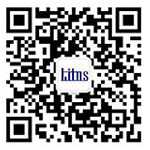 Home
-
Hot News
-
Home
-
Hot News
-
Samsung and SK Hynix's export license to China is expected to be extended for one year
Samsung and SK Hynix's export license to China is expected to be extended for one year
Author:netwing Time:2023-05-05 Browse:
According to foreign media reports, the Biden administration has recently issued signals to Samsung Electronics and SK Hynix, stating that they will allow Chinese chip factories of these two major South Korean storage chip companies to enjoy at least one more year of buffer period, during which they can continue to export American chip manufacturing tools to China without being affected by export controls
According to insiders cited by the Financial Times, the Biden administration has issued signals to Samsung Electronics and SK Hynix, stating that they will allow Chinese chip factories of these two major South Korean storage chip companies to enjoy at least one more year of buffer period, during which they can continue to export American chip manufacturing tools to China without being affected by export controls.
The Biden administration granted Samsung Electronics and SK Hynix a one-year temporary suspension of export controls in October last year.
Four insiders said that the United States has now issued a clear message that Korean manufacturers will receive another exemption for at least one year for their factories in China.
Since the US implemented export controls last year, US and South Korean officials have had intensive talks on how and under what conditions chip manufacturers can continue to operate in China.
It is currently unclear what mechanism the US will use to continue transferring US tools to China. One option is to provide companies with open "validated end use" certification, so there is no need to seek duplicate authorization.
Even if exempted, Korean chip manufacturers will not be able to import the extremely ultraviolet (EUV) machines needed to produce the world's most advanced storage chips.
According to several insiders, an effective one-year extension of the exemption, as well as other measures under discussion, will help South Korean companies maintain their technological advantage over Chinese competitors. This will help address concerns that business interruptions in China will benefit Chinese competitors.
"If the exemption is not extended, it will disrupt their chip production in China," said Kim Yang paeng, a researcher at the Korea Institute of Industrial Economics and Trade. "For example, if chip manufacturing equipment malfunctions, they need to replace some parts, but if they cannot renew the exemption, this will be impossible."
The US Department of Commerce and Samsung Electronics declined to comment on this. SK Hynix stated in a statement, "Given that negotiations between the US and South Korean governments are still ongoing, we are unable to comment."
 Home
-
Hot News
-
Home
-
Hot News
-
 Contact Us:86-755 0755-84501787
Contact Us:86-755 0755-84501787 Mailbox:jessie@szlitus.com
Mailbox:jessie@szlitus.com Headquarters Address:1808, Building A, Rongde International, Henggang Street, Longgang District, Shenzhen
Headquarters Address:1808, Building A, Rongde International, Henggang Street, Longgang District, Shenzhen

